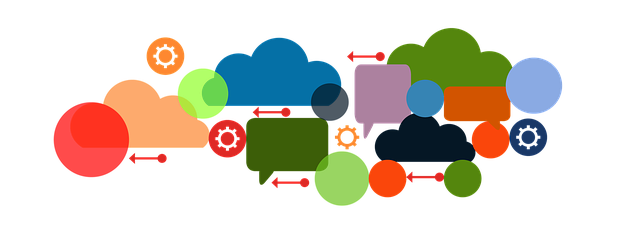AI diet adherence encouragement systems are transforming nutrition by using machine learning algorithms to analyze individual dietary patterns and provide personalized recommendations, including real-time nutrient monitoring. These smart trackers, integrated with mobile apps, simplify complex data into understandable insights to help users meet daily intake ranges. Gamification elements and social integration foster long-term healthy eating habits. However, challenges like data privacy concerns, accessibility barriers, and user fatigue must be addressed through innovative technology design and education to fully harness AI's potential in enhancing diet adherence.
Smart trackers, powered by AI, are transforming how we monitor nutrient intake. These innovative tools offer AI diet adherence encouragement systems that provide personalized insights and guidance, helping users make informed dietary choices. By analyzing eating patterns and offering real-time feedback, smart trackers enhance nutrient intake monitoring. This article explores the benefits of daily nutrition tracking with AI, while also addressing its challenges, providing a comprehensive guide to understanding AI diet adherence encouragement systems.
- Understanding AI Diet Adherence Encouragement Systems
- How Smart Trackers Enhance Nutrient Intake Monitoring
- Benefits and Challenges of Daily Nutrition Tracking with AI
Understanding AI Diet Adherence Encouragement Systems

AI diet adherence encouragement systems are transforming the way we approach nutrition and health. These innovative tools leverage machine learning algorithms to analyze individual dietary patterns, providing personalized feedback and recommendations. By understanding a user’s eating habits, AI can offer tailored suggestions to improve nutrient intake, promote balanced meals, and encourage healthier choices.
These systems not only track calorie intake but also monitor the types of nutrients consumed, ensuring users stay within recommended daily limits. They often incorporate gamification elements, such as rewards for meeting dietary goals, to foster engagement and motivation. Additionally, AI-driven insights can help individuals identify areas of improvement, making adjustments easier and more effective.
How Smart Trackers Enhance Nutrient Intake Monitoring

Smart trackers enhance nutrient intake monitoring through advanced AI algorithms that analyze food data and provide personalized insights. These tools offer real-time feedback, alerting users to imbalances in their diet and suggesting adjustments based on individual health goals. By integrating with mobile apps, smart trackers facilitate easy tracking of macro and micronutrients, ensuring users stay within recommended daily intake ranges.
The AI diet adherence encouragement systems not only help individuals make informed decisions but also foster long-term healthy eating habits. Through gamification features and interactive challenges, these trackers motivate users to stick to their nutritional plans. Additionally, they offer social integration, allowing users to share progress with friends, creating a supportive environment for maintaining consistent nutrient intake.
Benefits and Challenges of Daily Nutrition Tracking with AI

Daily nutrition tracking with AI offers significant benefits for maintaining a healthy diet and lifestyle. These smart trackers analyze dietary patterns, provide personalized recommendations, and offer real-time feedback on nutrient intake. By breaking down complex nutritional data into understandable insights, they empower users to make informed decisions about their meals. This level of personalization can lead to improved diet adherence encouragement systems, helping individuals stay motivated and committed to their health goals.
However, challenges accompany the adoption of AI for daily nutrition tracking. Privacy concerns around data security are paramount, as these trackers often require access to sensitive dietary information. Additionally, not all users may have equal access to technology or the digital literacy needed to effectively utilize these tools. User fatigue is another potential issue, as constant monitoring can lead to increased stress and a perception of dieting as a chore rather than a holistic lifestyle choice. Balancing these challenges with the benefits requires ongoing innovation in both technology design and user education.
Smart trackers, powered by AI diet adherence encouragement systems, offer a daily monitoring solution for nutrient intake. By enhancing transparency and awareness, these tools can significantly benefit individuals seeking to optimize their dietary habits. However, challenges such as user privacy concerns and the need for accurate data input must be addressed. Ultimately, leveraging AI for nutrition tracking can foster healthier lifestyles if users embrace its potential while being mindful of associated risks.
